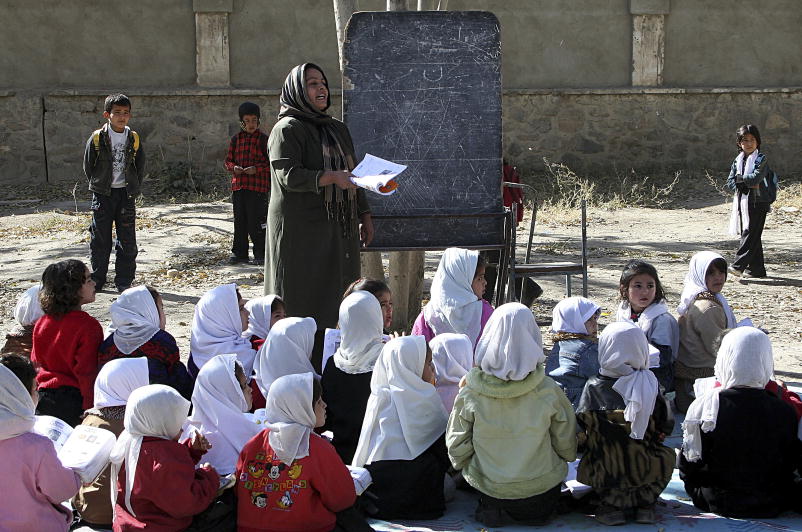Islamists in the West have offered mixed responses to the decision by the Islamic Emirate of Afghanistan’s Taliban government on December 20 to ban women from attending universities in the country.
In his explanation for the ruling, Neda Mohammad, the Taliban Minister of Higher Education, declared “Islam does not allow women to be educated.”
Illustrating the deep ideological variation between global Islamist movements, many Islamist figures in the West have condemned the announcement and the justification.
Haroon Imtiaz, a spokesman for the Islamic Society of North America (a group founded by the U.S. members of the Muslim Brotherhood), told Voice of America: “The Taliban’s recent ban on secondary education for girls is unacceptable and is clearly contrary to Islamic teachings.”
The deputy director of the Council on American-Islamic Relations (CAIR), which was established by supporters of the terrorist group Hamas, published a statement declaring:
We encourage nations around the world, especially Muslim-majority countries, to implore the Taliban government in Afghanistan to reverse the offensive and self-destructive measures that have restricted access to education for Afghan women and girls.
Curiously, however, CAIR also used the moment to “urge President Biden to release the full $7 billion in Afghan Central Bank funds desperately needed by the Afghan people to help rebuild their country.” (The administration maintains that the release of such funds would self-evidently enrich the Taliban regime and its Al Qaeda allies.)
Islamist figures who have previously praised the Taliban also appear taken aback by the regime’s decision.
Shamsi Ali, a New York imam popular in interfaith circles who once appeared to praise the “heat of jihad and the spirit of the mujahidin” and the “victory” of the Taliban, has now declared that Muslims must now “be in the front line to confront the Taliban.”
Meanwhile, Roshan Salih, editor of the seemingly pro-Taliban 5 Pillars publication, made clear that Afghans were “dismayed by the news.” Just last year, Salih wrote: “We should welcome a quick victory by the Taliban.”
Yvonne Ridley, a British Islamist (and apparent Stockholm Syndrome sufferer) echoed Salih’s disappointment, just ten months after praising the Taliban’s rule:
Other activists were more explicit in their condemnations. Dr. Aslam Abdullah, Editor-in-Chief of Muslim Media Network, declared the Taliban’s ruling was “in defiance of God” and a “violation of the Prophet.” And in a hint of the curious fusing of Islamism and progressivism that has occurred within the West in recent years, Abdullah added: “The Taliban, who achieved victory against foreign occupation, failed to win their battle against cultural discrimination and gender biases.”
Abdul Malik Mujahid, an American Islamist tied in closely to the Jamaat-e-Islami movement, went so far as to suggest the Taliban government is “munafiq” – false believers.
However, the Taliban’s decision does have its supporters in the West as well.
Daniel Haqiqatjou, a perpetually-outraged online Islamist preacher, stated that education for women will only lead them to prostitution. (Curiously, Daniel Haqiqatjou met his own wife at college, and proudly refers to her as a “Harvard graduate.”)

Meanwhile, a popular podcast show, the Mad Mamluks, featured a lengthy discussion on the ban.
The podcast hosts suggested that outsiders should not comment on the decision, given the country is going through “changes” and that a ban might not in fact be “outrageous.”
Possible reasons cited included: the Taliban’s defense of family values, given that “educated women” are more likely to file for divorce; the Taliban needed time to check that courses being taught, using “curriculum given to them by the West,” are Islamically-acceptable; and that women are not traditionally “expected to go out and work in the same field as the men.”
One host concluded: “We should show restraint in condemning them until we actually realize what the issue is. We Muslims are very heavy-handed with our Muslim brothers when we don’t know the full context.”
Another expressed regret that the Taliban so explicitly declared its decision to ban women from universities, saying that “if I was the leader of the Taliban … I would say, you know what, we’re not going to issue this press release … [instead] we’re going to decrease the level of resources … scale down the resources so that it’s not completely banning women, but only the most talented women are able to go to school.”
Western Islamist discussion is not just idle chatter. In yet another indication of the growing shift of Islamist thought from the East to the West, the Taliban appeared partly to rely on British Islamist output for their decision.
London-based activist Abbie Rumi Aryan noted that ahadith cited by Taliban minister Neda Mohammad to justify the interdiction are drawn from “two obscure Hadith books … sold in London through a Pakistani-based charity Al Azhar Academy.”
Al-Azhar Academy is a prominent institution of the extreme Deobandi sect (to which the Taliban belong). Al-Azhar is based in the London borough of Newham, and was formed “under the instruction and guidance” of the late Shaykh Yusuf Motala, who founded the most important Deobandi seminary outside of South Asia, Darul Uloom Bury.
Al-Azhar appears to have indirectly benefitted from taxpayer subsidy, claiming to have been sold a £2.7 million property, “despite having a guide price of over £3.5 million,” by Newham College, a local institution that receives over 77% of its funding from state coffers.
The Taliban’s behavior produces some interesting side effects among radicals in the West. While such bans serve to solidify the Taliban’s ties with (and reliance on) Deobandi activists in the West, as well as hardliners from Salafi and other cleric-led extremes, Taliban activity also foments intra-Islamist division, as besuited activists from Westernized Islamist movements such as Jamaat-e-Islami and the Muslim Brotherhood find themselves impelled to condemn.
